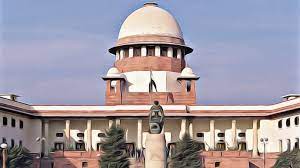Supreme Court adjourns Serum Institute's plea challenging 2016 I-T Act amendment until May 17
The Supreme Court postponed the Serum Institute of India's case, challenging an amendment to the Income Tax Act, until May 17th. The company disputes the inclusion of subsidies, grants, and incentives as taxable income. The Bombay High Court had earlier dismissed the petition, citing that the Constitution safeguards the right to trade but not the right to profit. The apex court granted time for further arguments.

- Country:
- India
The Supreme Court on Monday adjourned till May 17 the plea filed by the Serum Institute of India (SII) challenging an order of the Bombay High Court which dismissed its petition against a 2016 amendment to the Income Tax Act.
A bench comprising Chief Justice D Y Chandrachud and Justices J B Pardiwala and Manoj Misra deferred the matter after senior advocate Arvind P Datar, appearing for the company, sought time to argue.
The company has moved the apex court challenging the December 4, 2023 order of the Bombay High Court which rejected its petition against a 2016 amendment to Section 2(24) by insertion of sub-clause (xviii) under the Finance Act, 2015 that deals with the definition of ‘income’.
The plea challenged inclusion of subsidy, grant, waivers, concessions or reimbursements by the Centre or states or incentives in cash or kind as ‘income’.
The mere fact that institution of tax by virtue of a sub clause falls more heavily on the petitioner cannot result in the invalidity of the legal provision, the high court had said.
''The Constitution safeguards the right to trade under Article 19(1)(g) but does not extend this protection to the right to profit,'' the high court had said.
It is the duty of the legislature to ensure that the taxation policy reflects a balance between incentivising economic activity and ensuring equitable distribution of fiscal resources, the high court had said.
(This story has not been edited by Devdiscourse staff and is auto-generated from a syndicated feed.)
ALSO READ
Uttarakhand UCC Amendment: Assembly Speaker Open to Future Revisions
Second Adjustments Appropriation Bill, Electoral Matters Amendment Bill signed into law
Tejashwi Yadav Vows to Resist BJP-Led NDA Government's Constitutional Amendments in Jharkhand
RJD's Tejashwi Pledges Resistance to Constitution Amendment Attempts by BJP-Led NDA Govt in Jharkhand
BJP Accuses Lalu Prasad of Advocating Constitutional Amendment for Muslim Quotas










